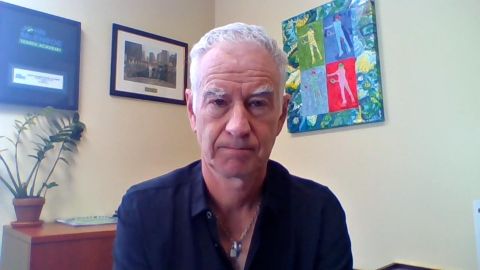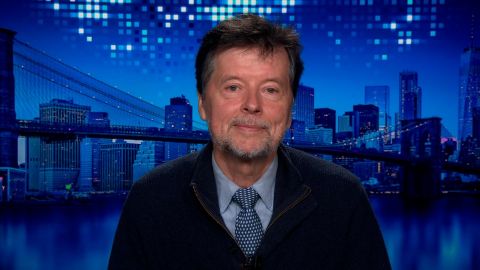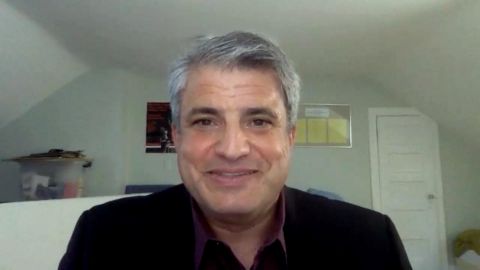Read Transcript EXPAND
CHRISTIANE AMANPOUR: Do you think the Raducanu-Fernandez final and the results and the hype around it is — how significant, for not just women’s tennis, but women’s sport?
JOHN MCENROE, SEVEN-TIME TENNIS GRAND SLAM CHAMPION: Well, that’s difficult to say? Totally unexpected. Never thought it would happen in my lifetime to see an 18- and 19-year-old do it. The last teenagers that were there were, Serena Williams and Martina Hingis played in the final in ’99. So this doesn’t happen very often. Significance? I think the women’s game is more open than it’s ever been. So that’s a sign that a lot more players believe they have a chance But when I watched Emma play at Wimbledon, and she walked off the court with an anxiety attack and didn’t return, did not expect this. I can’t imagine anyone in her camp expected this. And to win the U.S. Open without losing a set, that’s crazy. She’s a tremendous athlete. She seems like a great kid. Obviously, with what Naomi has been talking about, she’s not the first person that’s dealt with pressure in sports and had trouble handling it. She’s been more outspoken. And, unfortunately, I think they’re going to be watching her even more carefully. But, in the next couple years, it’s going to be very interesting to see how these two youngsters — Fernandez, I have seen for a couple years, great talent. Raducanu seems like she’s handling it tremendously well. I don’t know how she turned it around in the last couple of months. But I’m sure a lot of people would like to find out.
(LAUGHTER)
AMANPOUR: The secret sauce. Well, you heard what her coach had said. And she herself has said, after Wimbledon, she just went into the zone and just focused 100 percent. So, let me ask you, because we’re talking about the impact of sports on society in general. And tennis and, obviously, gymnastics with Simone Biles and other sports have really focused — and you mentioned Osaka as well — on the mental health issue. So, you talked about Wimbledon. And you did, in fact — I don’t know whether you were criticizing, but you said about Raducanu: “It appears it just got a little too much. It makes you look at the guys and girls who’ve been around for so long and wonder how they handle it. Hopefully, she will learn from this experience.” What did you mean by that? Because then Judy, the — Judy Murray, the indefatigable mother of Andy, said that you shouldn’t be talking about her like that. What did you mean by your comment then?
MCENROE: I meant exactly what I said. I tried to relate it in a small way to my experience when I first went to Wimbledon, also at 18, and managed to qualify, like Emma, did get through to the semis.She did better than I did. I played Jimmy Connors. I hadn’t been on the center court. And I remember my legs shaking and feeling totally overwhelmed by the experience and almost happy that I didn’t win, and subsequently went to Stanford for a year and had — had some time to sort of regroup mentally and prepare for the rigors of the tour. There’s a lot of great upsides, but there’s also pressure you put on yourself and expectations that others put on you. And so, compared to a lot of other things, Christiane, that I have said in the past, I mean, that was about, to me, as vanilla as they come.
(LAUGHTER)
MCENROE: I was very supportive of her, I thought, at the time. You know the papers over in England. Sometimes, they, like, make a big deal out of, to me, nothing.
About This Episode EXPAND
Ken Burns discusses his new documentary “Muhammad Ali.” 7-time Grand Slam champion John McEnroe weighs in on this year’s tournament. Sports journalist Dave Zirin explains how football player Colin Kaepernick sparked an international social movement by kneeling during the national anthem.
LEARN MORE


